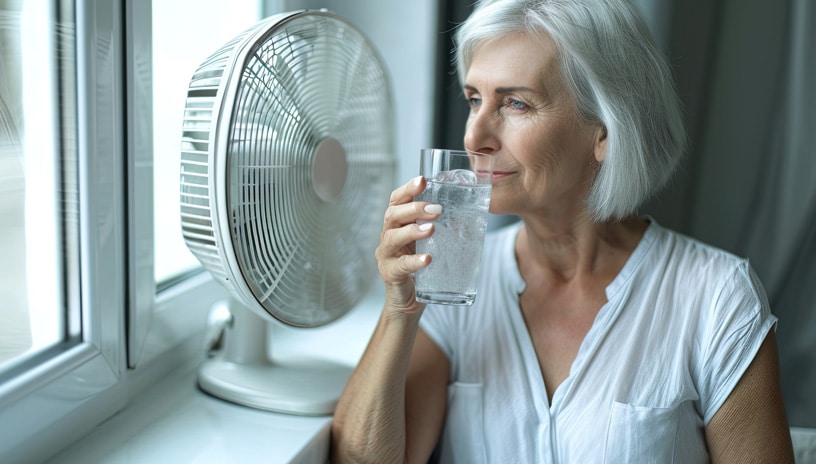Summer 2025 and Public Health

How has this summer’s prolonged heat and humidity in Central Illinois raised public health concerns?
Prolonged summer heat and humidity in Central Illinois pose a threat to the health and well-being of Central Illinois residents. The Moultrie County Health Department reminds residents to remain informed and prevent heat-related illnesses, stay weather aware, and avoid mosquito-borne diseases.
Prolonged Heat and Humidity: A Dangerous Combination
Central Illinois is enduring one of its most intense summers in years. A persistent heat dome has trapped scorching temperatures and humidity across the region, with heat index values soaring above 105° on several days.
This “oven‑like” atmosphere has been intensified by corn sweat. Corn sweat refers to the moisture released by corn fields during pollination, which contributes to the “mugginess” in the environment. The elevated moisture content of the atmosphere also reduces our body’s ability to cool down effectively.
Unfortunately, overnight temperatures have been stuck well above 75°F, offering little relief for people and animals. Prolonged exposure to excessive heat and humidity can exacerbate cardiovascular and respiratory conditions, elevate the risk of acute kidney injury, and worsen mental health outcomes. Individuals most vulnerable to high heat and humidity include senior adults, infants, outdoor workers, and those with chronic health conditions.
Severe Storms and Heavy Rainfall
Recurring rounds of severe thunderstorms and sudden localized heavy downpours continue to punctuate this summer’s oppressive heat. These storms pose multiple public health threats:
- Flash flooding of streets, low‑lying and widespread areas, and rivers.
- Power outages and damaged infrastructure.
- Increased pools of standing water, which are perfect breeding habitats for mosquito larvae.
Mosquito-Borne Disease: West Nile Virus (WNV) Warnings
Stagnant pools of water that form after storms allow mosquito populations to surge. Illinois health authorities have already identified WNV–positive mosquitoes in 43 counties.
As of mid-July, three human WNV cases have also been confirmed. WNV infections can be severe or fatal in about one in 150 people. Senior adults, young children, and those with weakened immune systems are at higher risk for illness.
Public Health Guidance: Stay Safe This Summer
The advancing summer conditions of 2025 not only affect us as individuals, but can also impede the services that maintain the well-being of our communities.
During excessively hot weather, emergency response and health care systems receive an increased number of calls for heat-related conditions. Public infrastructure, such as electricity and water, can experience failures due to weather events and increased service demands.
It is essential that every individual understands how to effectively manage their own health and safety this summer. The following guidelines can help you maintain your general well-being:
1. Prevent heat-related illnesses:
- Hydrate continuously and avoid outdoor activity during peak heat hours (mid-afternoon through early evening).
- Use air conditioning (AC) when possible or seek cooler places (public or private) if you don’t have direct access to AC in your home.
- Dress smart: wear lightweight, light-colored clothing and apply sunscreen when outdoors to reduce your risk of sunburn.
2. Staying weather aware:
- Monitor local weather advisories, especially those for severe weather and heat advisories.
- Have a backup plan when the weather threatens your area or activities
- Prioritize safety and well-being for yourself and your family
3. Avoid mosquito exposure:
- Eliminate standing water (e.g., buckets, birdbaths, gutters).
- Wear long sleeves/pants during dawn and dusk.
- Use EPA-approved repellents on skin and clothing
Why This Matters: Climate, Health, and Resilience
The convergence of severe heat and humidity, intense rainfall, and insect-borne illness increases threats to public health.
For residents in Central Illinois, understanding these interconnected risks and acting accordingly is crucial for protecting both individual and community health. Stay informed, be prepared, and take action to weather this season safely.

